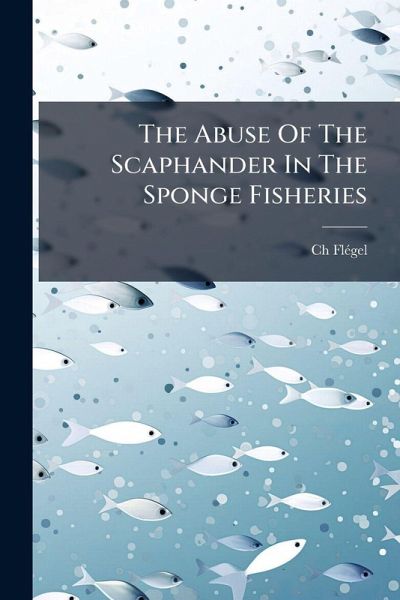
The Abuse Of The Scaphander In The Sponge Fisheries

PAYBACK Punkte
7 °P sammeln!
"The Abuse Of The Scaphander In The Sponge Fisheries" explores the use, and potential misuse, of the scaphander (a type of diving suit) in the sponge fishing industry. This historical account, penned by Ch Flégel, offers insights into the technology and practices of sponge fishing. It provides a glimpse into the risks and challenges faced by divers during this period. This work is valuable for those interested in the history of diving, marine industries, and the evolution of underwater technology. "The Abuse Of The Scaphander In The Sponge Fisheries" serves as a fascinating record of a specif...
"The Abuse Of The Scaphander In The Sponge Fisheries" explores the use, and potential misuse, of the scaphander (a type of diving suit) in the sponge fishing industry. This historical account, penned by Ch Flégel, offers insights into the technology and practices of sponge fishing. It provides a glimpse into the risks and challenges faced by divers during this period. This work is valuable for those interested in the history of diving, marine industries, and the evolution of underwater technology. "The Abuse Of The Scaphander In The Sponge Fisheries" serves as a fascinating record of a specific technological application within a historical economic context. This work has been selected by scholars as being culturally important, and is part of the knowledge base of civilization as we know it. This work was reproduced from the original artifact, and remains as true to the original work as possible. Therefore, you will see the original copyright references, library stamps (as most of these works have been housed in our most important libraries around the world), and other notations in the work. This work is in the public domain in the United States of America, and possibly other nations. Within the United States, you may freely copy and distribute this work, as no entity (individual or corporate) has a copyright on the body of the work. As a reproduction of a historical artifact, this work may contain missing or blurred pages, poor pictures, errant marks, etc. Scholars believe, and we concur, that this work is important enough to be preserved, reproduced, and made generally available to the public. We appreciate your support of the preservation process, and thank you for being an important part of keeping this knowledge alive and relevant.












